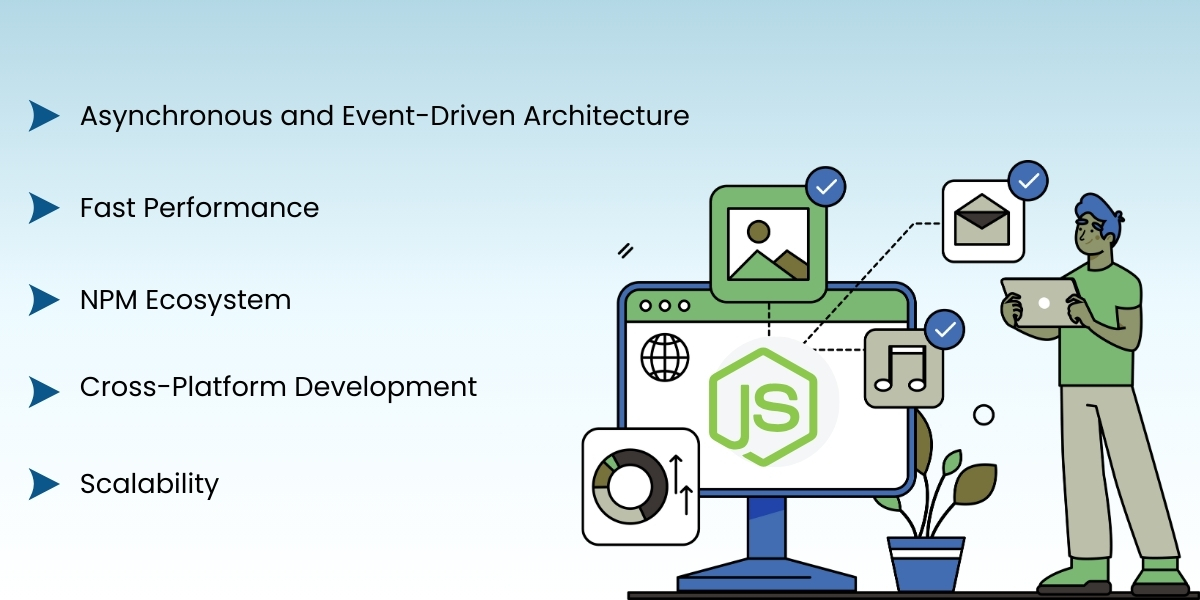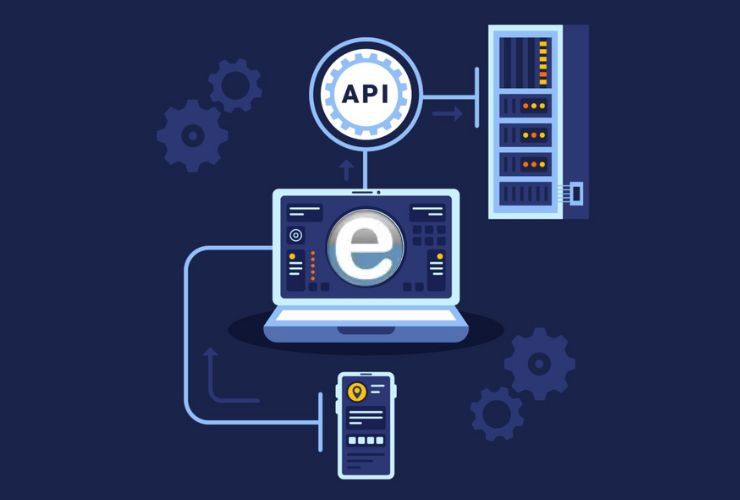In today’s fast-paced digital landscape, businesses increasingly require robust and efficient solutions to meet their evolving needs. This is where Node.js comes in. It’s a powerful JavaScript runtime that has quickly gained popularity among developers and organizations alike. But what exactly is Node.js, and why should you consider it for your next web development project?
In this blog post, we will delve into the key features, benefits, and use cases of Node.js, ultimately highlighting why it stands out as a top choice for modern web development.
What is Node.js?
Node.js functions as an open-source, cross-platform runtime environment that enables developers to execute JavaScript code on the server side. Built on Chrome’s V8 JavaScript engine, Node.js empowers developers to create scalable and high-performance applications using JavaScript, a language traditionally reserved for client-side scripting. By allowing developers to run JavaScript on the server, Node.js effectively bridges the gap between front-end and back-end development, facilitating full-stack JavaScript development.
Key Features of Node.js
- Asynchronous and Event-Driven Architecture Node.js uses a non-blocking, event-driven architecture, allowing it to handle multiple connections simultaneously without getting bogged down by individual requests. This makes it highly efficient and ideal for I/O-heavy applications, such as real-time chat applications and online gaming.
- Fast Performance Thanks to its V8 engine, Node.js compiles JavaScript into machine code, resulting in exceptional performance. This speed makes it a great choice for applications that require real-time data processing, such as streaming services or data-intensive applications.
- NPM Ecosystem its comes with a built-in package manager called npm (Node Package Manager), which hosts thousands of open-source libraries and modules. This vast ecosystem allows developers to easily share and reuse code, accelerating the development process and reducing costs.
- Cross-Platform Development With Node.js, developers can build applications that run seamlessly on multiple platforms, including Windows, macOS, and Linux. This cross-platform compatibility simplifies deployment and ensures that applications can be easily scaled and maintained.
- Scalability Node.js is designed to handle a large number of simultaneous connections, making it an excellent choice for building scalable applications. Its ability to distribute workloads across multiple servers enhances performance and reliability.
Benefits of Using Node.js
- Full-Stack JavaScript Development: Node.js excels empowers developers to use JavaScript for both front-end and back-end development, streamlining the process and reducing the need for multiple programming languages.
- Real-Time Applications: This technology excels in building real-time applications, such as chat applications and online gaming, where instant data exchange proves crucial.
- Microservices Architecture: This technology integrates seamlessly with microservices, enabling developers to create modular applications that can be independently deployed and scaled. This approach leads to improved maintainability.
- Community Support: The community remains vast and active, offering ample resources, tutorials, and support for developers at all skill levels.
Use Cases for Node.js
- Real-Time Applications: This technology is perfect for applications that require real-time communication, such as messaging apps and collaborative tools.
- API Development: Its lightweight and efficient nature makes this technology a popular choice for building RESTful APIs that serve data to various clients.
- Single Page Applications (SPAs): Developers can use this technology to build fast and responsive SPAs, ensuring a smooth user experience.
- E-commerce Platforms: Many online stores leverage this technology to seamlessly handle transactions, user sessions, and inventory management.
- Streaming Services: Node.js excels in streaming applications, allowing for quick data processing and minimal buffering.
Conclusion
In conclusion, it’s clear that Node.js is a powerful and versatile framework that has transformed web development. Moreover, its asynchronous, event-driven architecture, along with its speed and scalability, makes it ideal for businesses looking to build high-performance applications. Whether you’re creating a real-time chat app or a robust e-commerce platform, you can see that Node.js helps you unlock the full potential of your projects.
By choosing Node.js, you not only invest in technology that enhances performance and efficiency but also join a community that continually drives innovation and collaboration. Therefore, if you’re considering your next web development project, Node.js is undoubtedly worth exploring.
Ready to build faster, smarter web applications?
Partner with our Node.js experts to create secure, scalable, and high-performance solutions tailored to your business goals.
Frequently Asked Questions
Node.js uses a non-blocking, event-driven architecture that enables fast, scalable applications, making it ideal for real-time and high-traffic web projects.
Node.js excels in real-time performance and concurrent processing due to its event-driven model, while PHP and Python may be better suited for CPU-intensive tasks.
E-commerce, SaaS, fintech, healthcare, media, and logistics industries leverage Node.js for scalable and high-performance digital solutions.
Yes — Node.js is based on JavaScript, so developers who know JavaScript can quickly build backend services without switching languages.
Node.js reduces development time by using a single language (JavaScript) on both client and server, helping lower costs and accelerate delivery.















